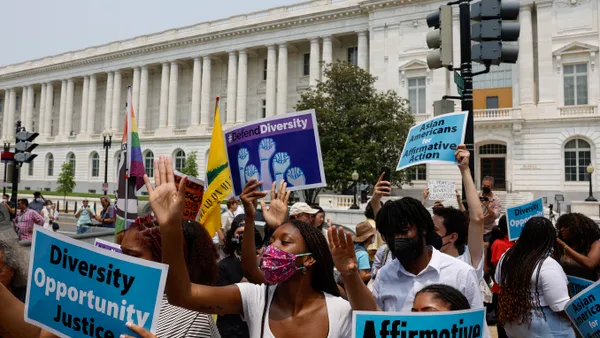The field of diversity, equity and inclusion has seen drastic changes in recent years. Some employers decommitted from DEI goals amid pressure from a variety of stakeholders, and government scrutiny has driven others to take a second look at their initiatives.
As a result, DEI roles have declined, but they haven’t disappeared, according to data from Revelio Labs examining Russell 3000 companies.
The organization recorded roughly 6,000 such roles at the beginning of 2017; they peaked at a little more than 13,000 in July of 2022, before falling to just under 11,000 last month.
Head count of DEI personnel at Russell 3000 companies
Of those professionals who left a DEI role since their numbers began dwindling, most changed both employers and roles, leaving DEI work. Nearly 40%, however, stayed with their employers — albeit in a non-DEI role. Only 7% continued to work in DEI.
“While the number of dedicated DEI roles is shrinking, the expertise developed in these positions is not being lost,” according to an analysis from Revelio. “Instead, it is being redirected into other parts of the organization, suggesting that while the DEI label may be fading, the underlying work of building equitable and inclusive environments continues to find new avenues to persist.”
Share of transitions from a DEI role since 2022
Those who left DEI were most likely to continue to work in HR. Some also changed professions, however, with DEI professionals shifting to fields like public affairs and marketing.
Most common roles taken by former DEI professionals since 2022
The organization’s research also found that employers with DEI teams reported higher employee satisfaction and experienced improvements in workplace culture ratings, leading it to recommend employers work to embed DEI knowledge in their organizations for growth and adaptability.
“The question is not whether companies can afford to prioritize DEI,” the report concluded, “but whether they can afford not to.”
















